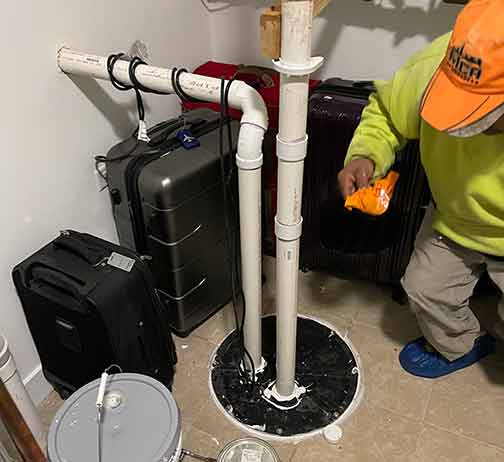Sewage pumps are essential in many homes, as they are responsible for removing wastewater from the home. When these pumps are not working correctly, it can lead to a lot of problems in the home. In order to diagnose and repair a sewage ejector pump, there are a few steps that need to be taken in order to ensure that the pump is functioning correctly.
Common Sewage Ejector Pump Problems
When it comes to sewage ejector pumps, there are a few common issues that homeowners may experience. One of the most common issues is clogging. Clogging can occur when there is an issue with the pump’s impeller or when debris has become lodged in the pump. This can lead to the pump not being able to move the wastewater out of the home, resulting in sewage backups and flooding. Another common issue is a broken motor, which can be caused by overworking the pump or a buildup of debris in the motor.
Tips on Sewage Pump Repairs
- In order to repair a sewage ejector pump, the first step is to check the impeller. The impeller is the part of the pump that moves the wastewater out of the home. If the impeller is clogged or broken, it will need to be replaced. To do this, the pump will need to be removed from the sewage line. Once the pump is removed, the impeller can be checked and replaced if necessary.
- The next step is to check the motor. If the motor is broken, it will need to be replaced. To do this, the pump will need to be removed from the sewage line and the motor will need to be taken apart and replaced. It is important to remember to check the wiring and connections for any damage as well.
- If the pump is still not working correctly, it may be time to inspect the sewage line for any blockages or debris. If there are any blockages or debris, it will need to be removed in order to ensure that the pump is able to function correctly.
Repairing a Sewage Ejector Pump
Once the pump is repaired, it is important to remember to regularly maintain it in order to ensure that it is functioning correctly. Regular maintenance should include checking the impeller and motor as well as cleaning the pump and the sewage line. This will help to ensure that the pump is working properly and will help to prevent any future issues.
It is also important to remember to replace the ejector pump when necessary. These pumps are designed to last for a certain amount of time and if they are not replaced when necessary, it can lead to further damage and malfunctioning of the pump.
In Conclusion
In conclusion, diagnosing and repairing a sewage ejector pump can be a complicated process. However, with the right steps, it is possible to ensure that the pump is functioning correctly and that any problems are addressed quickly and efficiently. By regularly maintaining the pump and replacing it when necessary, homeowners can ensure that their pump is working properly and that wastewater is being removed from the home safely and efficiently.
